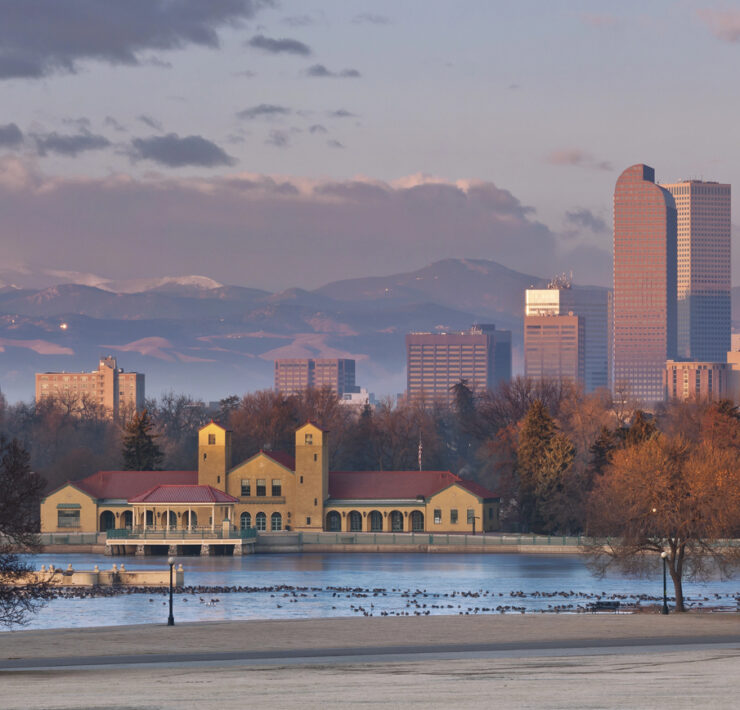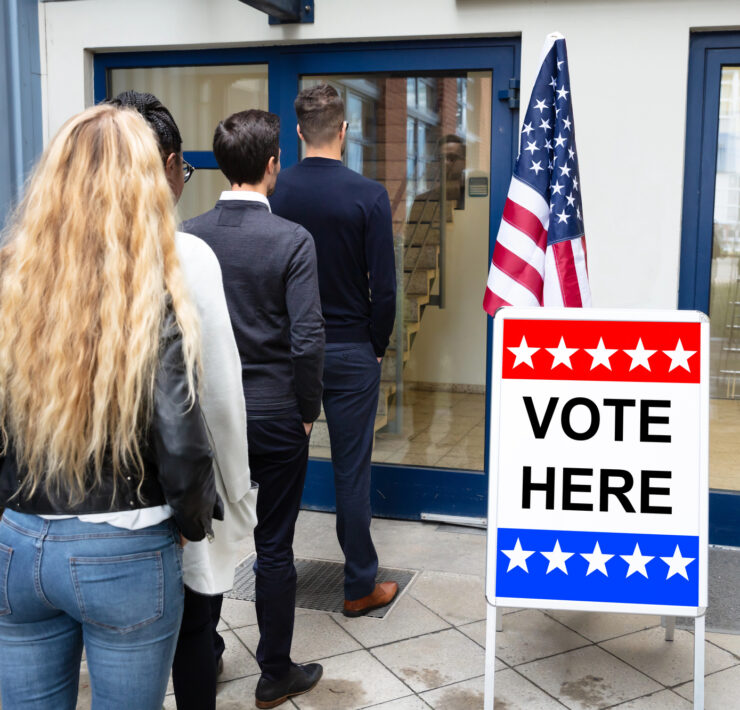Talking Racial Disparities and COVID with Rep Leslie Herod

Intersectionality, accessibility, and squashing the sexist, patriarchal norms through queer…
Myriad persistent, systemic issues have been brought to the surface due to the COVID-19 pandemic, particularly putting a spotlight on the continued disparities that the Black and Brown communities face. While the effects of the coronavirus on the health of racial and ethnic minority groups is still emerging, data is showing that these minority groups face a disproportionate burden of illness and death. This is why leaders like House Representative Leslie Herod are stepping up and speaking out.
As a queer, Black woman, Herod not only has a personal stake in the game, she understands that she represents many intersections of minority communities and takes that responsibility to serve them seriously. Her history as a House Representative time and time again shows that she is here to break down stigma, provide necessary visibility, and seriously change how policies in politics impact those minority groups.
From working on bills that could reform substance use disorder recovery, prison population reduction actions, to race trait hairstyle anti-discrimination protections in the workplace and eliminating the gay/trans panic defense, Herod has been busy with the 2020 legislative session. Now, you can add a task force researching and dissecting the racial disparities in Colorado COVID-19 outcomes to her list of ways she is showing up for minority groups here in the Rocky Mountain state.
We talked with Herod about specifically what the work is that she is doing around these outcomes and why she believes these disparities exist in such a large way.
Why did you decide to start tracking and reporting on disparities between race and coronavirus outcomes?
Recently, a few of us legislators of different states have come together, African Americans in particular, to say we need to understand how COVID is disproportionately impacting our communities. When we talk about COVID initially being a respiratory illness, and as someone with asthma, it triggered in me, ‘Oh, we have disproportionate rates of asthma in our community. Is there a correlation between the death rate from African Americans?’
As soon as we asked for the data, we found that there absolutely was. It’s not only the number of people who are admitted to the hospital who are African Americans, it’s the death rate, and there’s a lot of reasons for that, and it’s something that we need to address head-on.
What have your findings been, specifically in Colorado?
In Colorado, African Americans, based on the preliminary data, are at least two times more likely to be hospitalized from COVID. We’re asking for more robust data so that we can get more information, particularly because we also have health discrimination, so we have to present with much higher level symptoms before we’re even admitted to the hospital or taken seriously, so we’re less likely to get tested.
But across the country, you’re seeing the outcome really happen in our death rates being disproportionately higher than the general population.
Did this data and information come as a surprise to you?
‘Surprised’ I don’t think is the right word. I think the question is what are we going to do about it.
What do you feel that you and your fellow legislators are leaning towards when it comes to a type of solution?
First, we need to make sure the data is robust, so that when we go back into session, we have the tools that we need legislate appropriately. We do need to ask for a specific response for our communities, and I’m including the Latinx population as well because they are facing poor outcomes as well.
So, that means that we need to make sure that our healthcare response is favorable in African American communities. We need to make sure that our healthcare providers know about this unfortunate impact on our communities, and that they are more likely to give us the appropriate treatment and testing. We need to make sure that our communities and our families that are hard-hit are compensated in some way by these stimulus packages that are coming out that have no mention of race. We need to address the inequities now because we know that there could be more waves, and we can get ahead of that right now.
A spokesperson for the Colorado Department of Public Health told NPR recently that there was only a 30 percent accuracy rate of reporting the race and ethnicity of people who have died from COVID complications. Does that inaccurate reporting play a part?
I have not read that, but anecdotally, I’ve heard that there are some complications in the data. I can’t quote that, particularly, but the thing that we’re seeing is that we think there is an under-report because when people die in their homes, that data might not be reported; they might not have been tested for COVID; there’s a lot of different factors. I can’t dispute that information, and I can’t say that I know firsthand that it’s true.
What teams or organizations do you see yourself working with once this data and research starts rolling in?
I’m happy to already be working with them; I’m happy to say that there are already groups who have formed very quickly to address these issues. The Center for African American Health is a great resource. COPA, the Colorado People’s Alliance, are doing a lot of work on essential workers and ensuring that workers are protected. Even RTD (Regional Transportation District); RTD’s African-American bus drivers make up 75 percent so, they’re trying to make sure that their drivers are protected because they’re still out there working, and they have high rates of infection. There’s just more that we can do, and I’m proud to be working with groups who are already saying, ‘We need to address this.’
These are equity issues, and we are lucky enough now to have people at the table who want to talk about it, and people can do something about it.
Is this the first time that you’ve seen these equity conversations being had at this level?
Taken so seriously, absolutely, and it’s moving in Congress as well. Congresswoman Pressley introduced the bill with Senator Warren, and I know that our democratic delegation is on it, from Diana DeGette, Joe Neguse, and Jason Crow are on the bill, and it’s basically again asking for more data at the federal level.
How can people get involved and support these efforts?
Anyone can feel free to reach out to my office or follow me on socials for more information; we’ll be continuing to put out information and ways to get involved.
What's Your Reaction?
Intersectionality, accessibility, and squashing the sexist, patriarchal norms through queer pearls of wishful wisdom.










